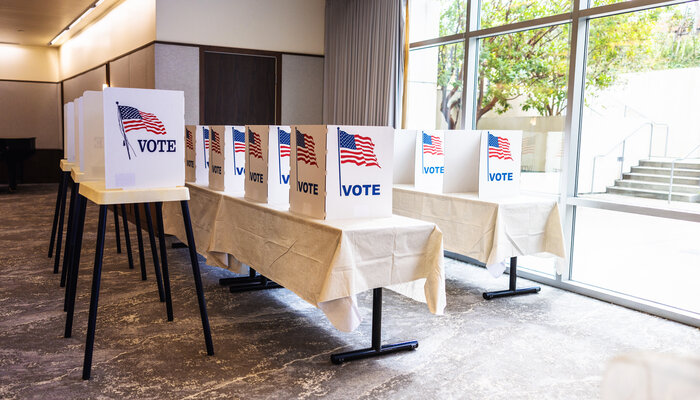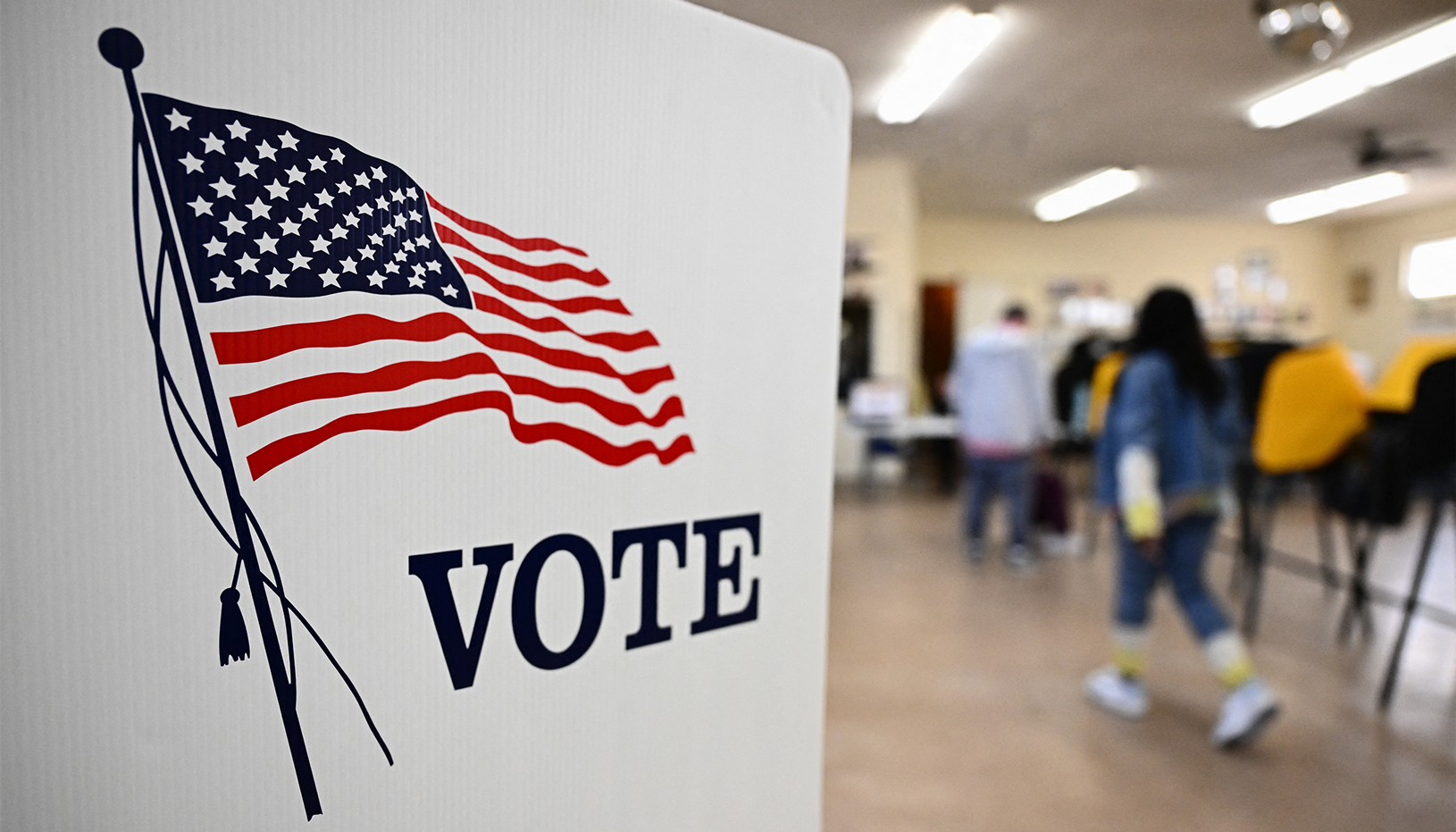Since former President Trump lost his reelection bid in 2020, his supporters have baselessly claimed that ineligible voters swayed the results. These claims have led to a movement to scrutinize state and local voter rolls, flag large numbers of registrants as potentially ineligible, and pressure election officials to remove them from the rolls. This mass challenge movement relies on a variety of tools to pull together large volumes of data and quickly generate challenges en masse. Its efforts have been rejected by courts and election officials as “replete with errors, inaccuracies and inaccurate assertions,” “shoddy” and “verg[ing] on recklessness,” yet it is, if anything, ramping up this activity.
Based on media reports, the mass challenge movement appears to be relying most heavily on four tools for aggregating data: VoteRef, EagleAI, Check My Vote, and IV3. While these tools vary in terms of the sources they pull together and the strategies their users employ, they suffer from common flaws: unreliable or outdated data, inappropriate comparisons between static and dynamic lists that capture different information, and overreliance on name matches that can cause false positives.
To reduce their potential for disenfranchising eligible voters and sowing disinformation, it is important to understand how these tools work, as well as their limitations.
VoteRef
VoteRef, a national project and tool for scrutinizing voter rolls, is led by a former Trump campaign state director and current state Republican Party chair. It’s a subsidiary of Restoration of America, a self-described conservative organization and PAC dedicated to opposing “the elite, Marxist neo-liberals.” Using a combination of data purchases, open records requests, and litigation, VoteRef has obtained and published voter rolls for over 161 million voters in 31 states and the District of Columbia. The organization pitches itself as a watchdog and a resource to assist voters in generating complaints about the election process. At least one other organization, EagleAI, is using VoteRef to generate mass challenges to registrants on state voter rolls.
The voter roll data VoteRef publishes contain enough information, like home address and party affiliation, to raise serious privacy concerns for voters who need protections from doxxing and other unwanted uses of their personal data. At the same time, these publications often lack the sensitive personal information needed to confidently identify matches between voter rolls, making them an unreliable basis for flagging voters who may be registered but ineligible. (By contrast, through the Electronic Registration Information Center, states share sensitive information, such as hashed and encrypted social security numbers from department of motor vehicle files, which allows them to accurately identify individuals who have moved between states.) Compounding this problem, VoteRef publishes only occasionally updated versions of state voter rolls. (For example, as of recently, they were posting data from November 2022 for Mississippi.) Because state voter rolls are dynamic and constantly updated as election officials take in new information, VoteRef’s data tend to be outdated–to varying degrees depending on the state. Finally, VoteRef is formatted to include party affiliation, which creates a risk that users will target political opponents for voter challenges.
VoteRef also has sowed disinformation in other ways. It has claimed to find “discrepancies” between cast ballot totals and voter records and implied that these cast doubt on the accuracy of election results. But these two sources are not comparable. The cast ballot totals are a one-time snapshot of an election. Voter rolls, by contrast, are dynamic databases: when names are removed from the rolls for any reason (such as a move or death), the voting history for those names are likewise removed, which explains why these rolls will not reflect vote totals for any particular election.
EagleAI
One of the organizations that uses VoteRef data is EagleAI, a national network dedicated to challenging voter registrations, advocating for voter roll purges and, more generally, sowing doubts about voter roll accuracy. EagleAI is intensely secretive — almost everything we know about it comes from leaked documents and videos obtained by the investigative organization Documented. Though it purports to be nonpartisan, internal planning documents indicate that it is funded by Donors Trust, a dark money conservative group that also funds election denial efforts.
The EagleAI network uses a software tool, also called EagleAI, to generate these challenges. This tool pulls data from various sources — such as VoteRef, the National Change of Address registry, “Google scrapes,” business records, and property tax records — and identifies potential inconsistencies that may or may not constitute evidence that a registered voter has moved or is otherwise ineligible. (The National Change of Address database is unreliable on its own for determining voter ineligibility because it can sweep in people who have temporarily relocated but still intend to vote at home, are in a household where someone else have moved, or simply share a name with someone who moved.) EagleAI’s founder has acknowledged that the sources it uses are less reliable than the sources available to states that choose to participate in the Electronic Registration Information Center, an interstate compact that pulls together state and federal data to flag potential inaccuracies in state voter rolls. He has made conflicting statements about whether or not the software uses AI. And users have raised questions about its functionality; in one case, a user complained that it had inaccurately flagged her as having moved.
EagleAI is configured with the goal of enabling activists to autofill state voter challenge forms with a few clicks. Former Trump campaign lawyer Cleta Mitchell has been championing EagleAI and helping to roll it out to activists associated with right-wing election denial groups, such as her Election Integrity Network, that are trying to organize mass challenges to state voter rolls.
EagleAI also aims to persuade local officials to use the software to reject registration applications or purge voters. For example, it recently came to light that Florida’s director of elections forwarded to local officials a list — compiled by a third party using EagleAI — of roughly 10,000 purportedly questionable matches. There have also been similar reports from Ohio and Georgia.
EagleAI’s founder has made patently misleading public claims about the accuracy of current voter rolls, such as “flagging” voters who have already been moved to inactive status and students registered to a common campus address, as well as conflating common data-entry errors with actual registrations of ineligible voters.
Check My Vote
The voter challenge tool Check My Vote is primarily used in Michigan, but its parent group has more recently established additional websites focused on Ohio and New Mexico. Like EagleAI, this project is connected to the Election Integrity Network. According to a training presentation for the tool and the tool’s website, Check My Vote draws from U.S. Postal Service data including the National Change of Address registry, a commercial address database from a company called Melissa, and states’ voter file records. Among the voter registrations previously identified as having “potential irregularities” are those with missing apartment numbers, those with missing trailer units, those indicated to be part of multi-resident homes with five or more registered voters, those attached to voters over age 90, and, according to a dashboard snapshot shared in a training, seemingly those residing in dementia or memory care facilities — none of which is a sufficient basis for removing voters from the rolls on its own.
Check My Vote trainings encourage Michigan activists to use these lists to conduct door-to-door canvasses and gather further fodder for voter challenge affidavits. Such affidavits themselves are unreliable, sometimes containing secondhand information that the canvasser claims to have obtained from someone who answered the door at a given address or reflecting details that canvasser has filled out themselves before asking an “occupant” to sign and date the statement. Such door-to-door activity also creates potential voter intimidation risks, especially because trainers suggest that volunteers can introduce themselves as “elected precinct delegates.”
Moreover, at least one Check My Vote user has challenged large numbers of voters without following state requirements. For example, the secretary of state’s office instructed Waterford Township’s clerk to reinstate more than 1,000 voters discarded from the rolls after an activist challenged voters using the Check My Vote tool. The removals violated state law because the activist did not challenge each voter with an individualized affidavit as required by Michigan.
IV3
IV3 is a voter challenge tool created by True the Vote, a conservative organization that has historically spurred frivolous mass voter challenges in American elections. IV3 appears to be operational in several states — including California, Georgia, New York, and Texas. It matches data from state voter registration lists with National Change of Address records. According to reporting by Wired in 2022, the IV3 app was then based on an algorithm that purported to identify “substantive discrepancies” between address change records and voter registration data, flagging entries for review. IV3 also allows — and True the Vote encourages — activists to file challenges on other bases. Activists can use the tool’s search function to locate records associated with specific registered voters. True the Vote has further claimed to help “prepare [the] challenge for filing based on [a] state’s specific requirements.” In a lawsuit filed by FairFight against True the Vote, a court found that while plaintiffs had not made a case that True The Vote’s mass challenges violated specific voter intimidation laws, they had shown that many challenges fielded through IV3 were “shoddy,” “rife with error,” "utterly lack[ing] reliability,” and “verg[ing] on recklessness.”
Unlike the organization mobilizing activists to use Check My Vote, True the Vote instructs IV3 users to not contact or track down voters. And although activists sometimes conduct additional research, True the Vote also advises them to submit challenges whenever a voters’ registration address “does not match” Postal Service records — a circumstance that could arise for several reasons that would not justify removing a voter from the rolls, including temporary travel plans, multiple residences, or outdated records.
• • •
VoteRef, EagleAI, Check My Vote, and IV3, and similar tools used by election denier activists are lending a veneer of sophistication to long-discredited claims that ineligible voters are voting in significant numbers and swaying election results. In evaluating the claims put forward by proponents of these tools, it is important to understand the limitations of the data they use, the methodological flaws in their analysis, and the ideological bent of those funding and promoting these tools.



